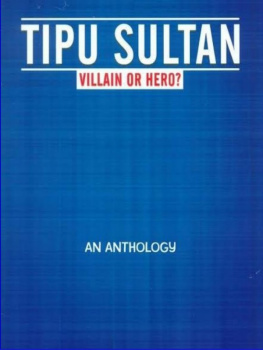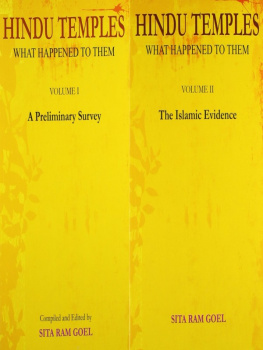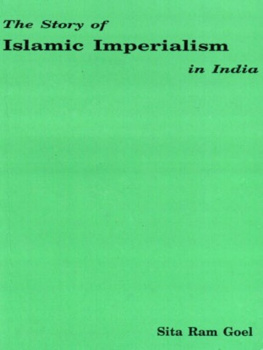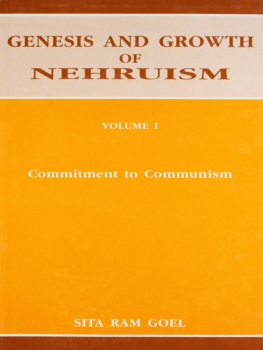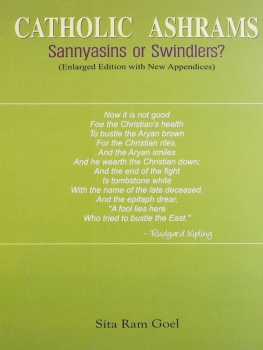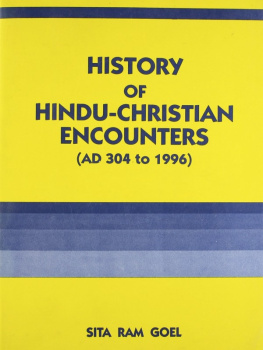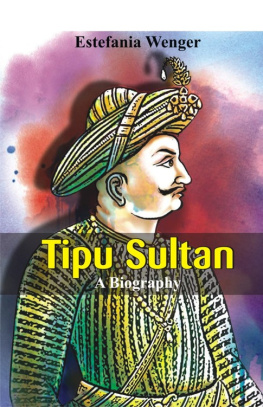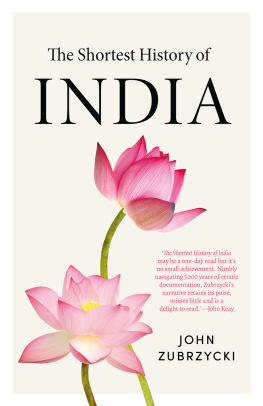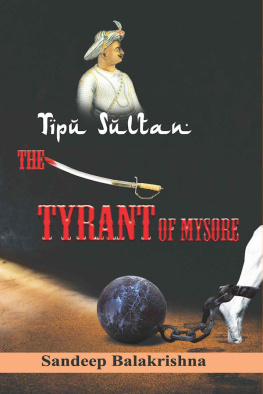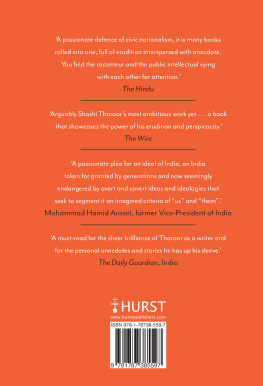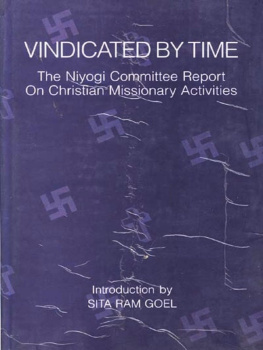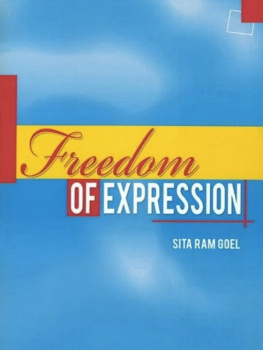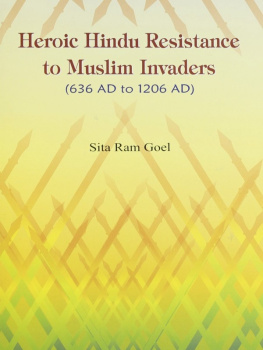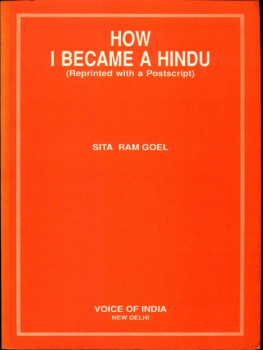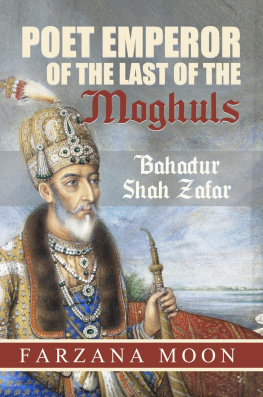Tipu Sultan Villain or Hero
Pages
Tipu Sultan Villain or Hero
Sita Ram Goel
This book was produced in EPUB format by the Internet Archive.
The book pages were scanned and converted to EPUB format automatically. This process relies on optical character recognition, and is somewhat susceptible to errors. The book may not offer the correct reading sequence, and there may be weird characters, non-words, and incorrect guesses at structure. Some page numbers and headers or footers may remain from the scanned page. The process which identifies images might have found stray marks on the page which are not actually images from the book. The hidden page numbering which may be available to your ereader corresponds to the numbered pages in the print edition, but is not an exact match; page numbers will increment at the same rate as the corresponding print edition, but we may have started numbering before the print book's visible page numbers. The Internet Archive is working to improve the scanning process and resulting books, but in the meantime, we hope that this book will be useful to you.
The Internet Archive was founded in 1996 to build an Internet library and to promote universal access to all knowledge. The Archive's purposes include offering permanent access for researchers, historians, scholars, people with disabilities, and the general public to historical collections that exist in digital format. The Internet Archive includes texts, audio, moving images, and software as well as archived web pages, and provides specialized services for information access for the blind and other persons with disabilities.
Created with abbyy2epub (v.1.7.2)
AN ANTHOLOGy
BOMBAY MALAYALEE SAMAJAM First published 1993 Pdf: 2016.
All rights reserved. No part of this book may be reproduced, in whole or in part, in any form or by any means, electronic or mechanical, including photocopying, recording, or by any information storage retrieval system, without permission in writing from the publisher.
ISBN 81-85990-08-3
Published by Voice of India, 2/18, Ansari Road, New Delhi - 110 002. and printed at Crescent Printing Works (Pvt.) Ltd.,
P-14, Connaught Circus, New Delhi-110 001.
CONTENTS
Preface vii
1. The Sword of Tipu Sultan 1
V.M. Korath
2. Religious Intolerance of Tipu Sultan 7
Late P.C.N. Raja
3. Tipu s own Testimony 18
C. Nandagopal Menon
4. Tipu Sultan: As Known in Kerala 2 3
Ravi Varma
Appendix 1: Mappilas of Malabar 4 6
Appendix 2: Nedumkotta: Travancore Defence
Fortification 49
5. Scandalous Tele-Serial on Tipu Sultan 51
Prakash Chandra Asdhir
6. Tipu Sultan: A Fanatic Muslim 54
Ravi Varma
7. Tipu Sultan and Doordarshan 56
K. Govindan Kutty
8. The Tele-Serial on Tipu Sultan 59
P. Parameswaran
9. A Letter to Shri P. Upendra 61
P.C.C. Raja
10. Highlights of Agitation Against the Tipu Sultan Serial 64
B.N.Jog
11. History of Legal Battle Against the T. V. Serial 69
Madhavrao D. Pathak
Appendix: In the High Court of Judicature at Bombay 80
PREFACE
Secularism per se is a doctrine which arose in the modern West as a revolt against the closed creed of Christianity. Its battle-cry was that the State should be freed from the stranglehold of the Church, and the citizen should be left to his own individual choice in matters of belief. And it met with great success in every Western democracy.
Had India borrowed this doctrine from the modern West, it would have meant a rejection of the closed creeds of Islam and Christianity, and a promotion of the Sanatana Dharma family of faiths which have been naturally secularist in the modern Western sense. But what happened actually was that Secularism in India became the greatest protector of closed creeds which had come here in the company of foreign invaders, and kept tormenting the national society for several centuries.
We should not, therefore, confuse Indias Secularism with its namesake in the modern West. The Secularism which Pandit Jawaharlal Nehru propounded and which has prospered in postindependence India, is a new concoction and should be recognized as such. We need not bother about its various definitions as put forward by its pandits. We shall do better if we have a close look at its concrete achievements.
Going by those achievements, one can conclude quite safely that Nehruvian Secularism is a magic formula for transmitting base metals into twenty-four carat gold. How else do we explain the fact of Islam becoming a religion, and that too a religion of tolerance, social equality, and human brotherhood; or the fact of Muslim rule in medieval India becoming an indigenous dispensation; or the fact of Muhammad bin Qasim becoming a liberator of the toiling masses in Sindh; or the fact of Mahmud Ghaznavi becoming the defreezer of productive wealth hoarded in Hindu temples; or the fact of Muhammad Ghuri becoming the harbinger of an urban revolution; or the fact of Muinuddin Chishti becoming the great Indian saint; or the fact of Amir Khusru becoming the pioneer of communal amity; or the fact of Alauddin Khilji becoming the first socialist in the annals of this country; or the fact of Akbar becoming the father of Indian nationalism; or the fact of Aurangzeb becoming the benefactor of Hindu temples; or the fact of Sirajuddaula, Mir
Qasim, Hyder Ali, Tipu Sultan, and Bahadur Shah Zafar becoming the heroes of Indias freedom struggle against British imperialism; or the fact of the Faraizis, the Wahabis, and the Moplahs becoming peasant revolutionaries and foremost freedom fighters?
One has only to go the original sources in order to understand the true character of Islam and its above-mentioned luminaries. And one can see immediately that their true character has nothing to do with that with which they have been invested in our school and college text-books. No deeper probe is needed for unraveling the mysteries of Nehruvian Secularism.
This is not the occasion to go into the implication of this Secularism vis-a-vis Indias own spiritual vision, Indias own cultural wealth, Indias own national society, and Indias own native nationalism. I have dealt with this theme elsewhere. Suffice it to say that the other face of this Secularism is Hindu-baiting, which profession has been perfected by many scholars, scribes, and politicians, and has so far proved immensely profitable. I need not give the names. The stalwarts in this field are very well known.
The Bombay Malayalee Samajam has, therefore, rendered a great service in providing a test case, that of Tipu Sultan, for exposing the true character of Nehruvian Secularism. To the best of my knowledge, this Secularism has never faced a challenge such as was posed before it by the scholars and men of public spirit whom we meet in the pages of this book, Tipu Sultan; Villain or Hero? The wealth of first-hand source materials presented in the articles that comprise this book, portray not only the base metal that was Tipu Sultan but also the components of that alchemy which has transmuted him into twenty-four carat gold. VOICE OF INDIA is proud that it should have the privilege of publishing this study of an arch villain being sold as a great hero.
The fight for truth which is described in this book, has proved fruitful. The Statesman dated May 24, 1933 reports: Once again Tipu Sultan has become a controversial topic in Karnataka. First it was the serial produced by Sanjay Khan which attracted criticism and protests from people, now it is the bi-centenary of his death which has created quite a stir... the Karnataka Board of Wakfs has organized the bi-centenary, Urs-e-Sharif, of Hazrat Tipu Sultan Shaheed (R.A.), from May 21 to May 23 this year.... This has led to speculation that the Government will again spend several lakhs of rupees in 1999 to observe the 200th death anniversary of Tipu. The

